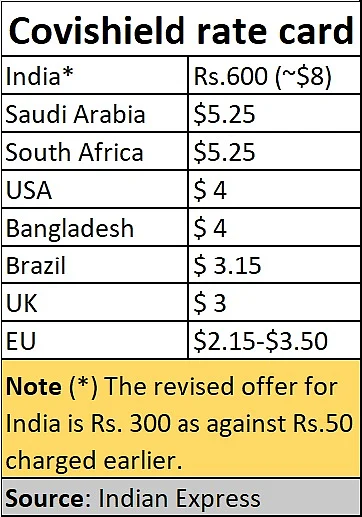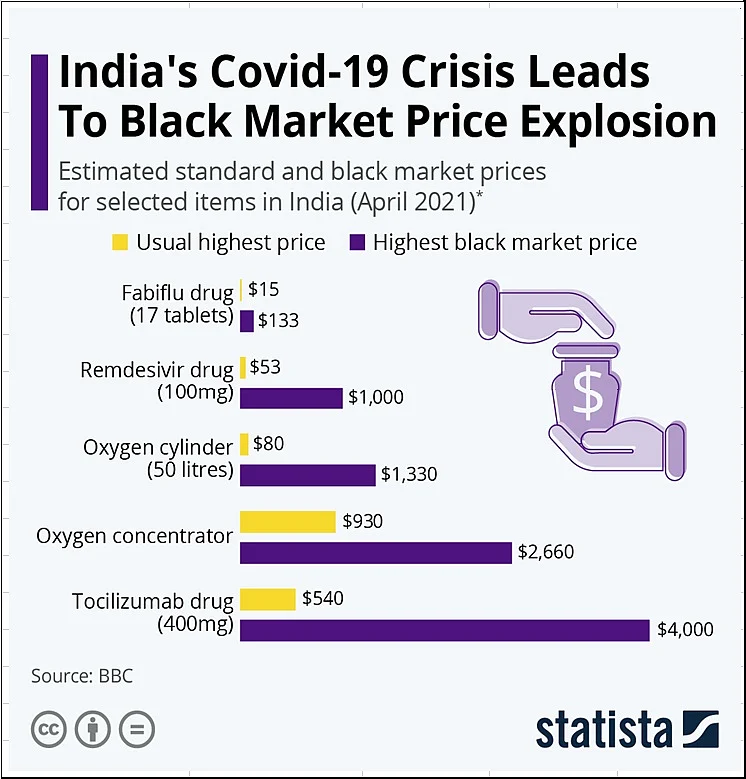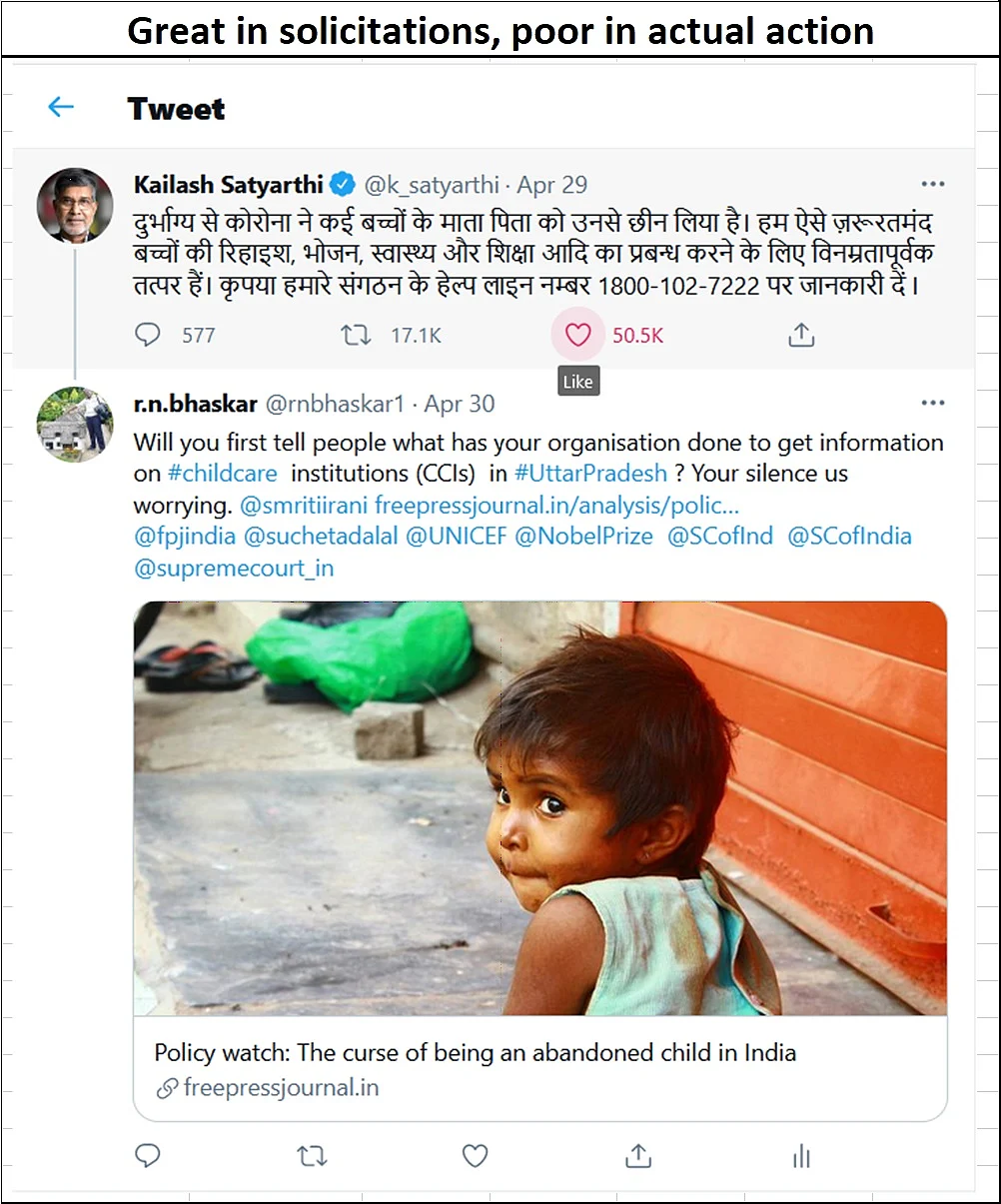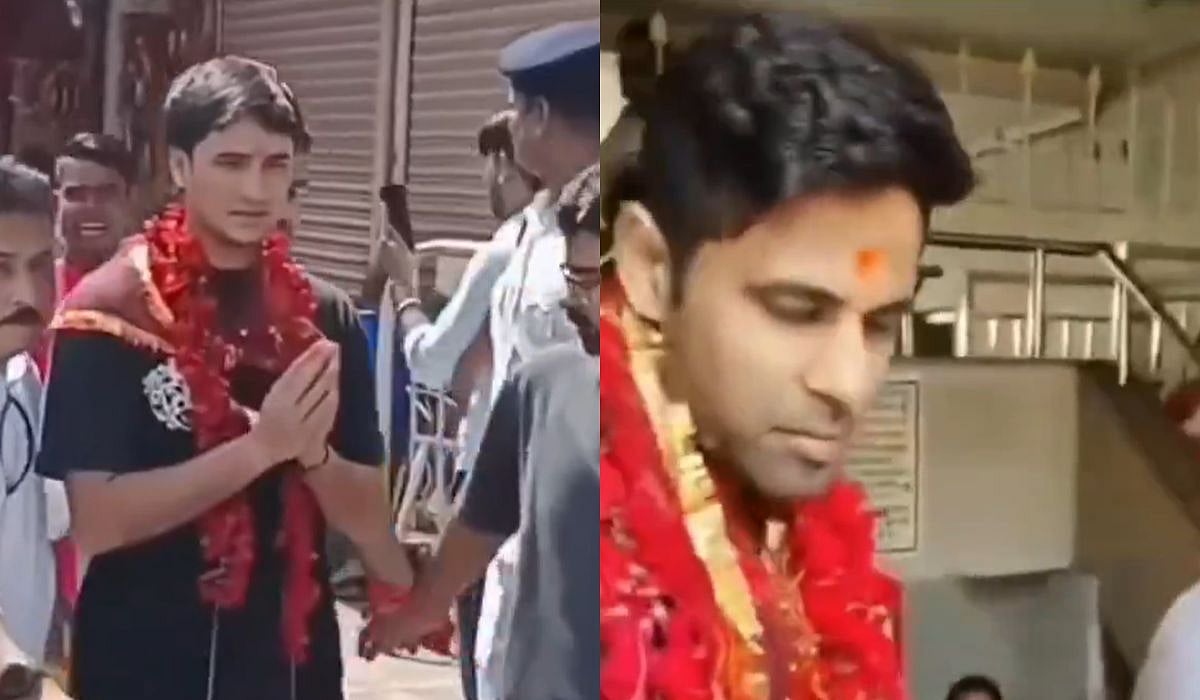Last week the country got a whiff of fresh air, even though the shortage of oxygen continued. The courts – both the Supreme Court and the high courts -- finally hauled up the governments – both at the centre and the states. It asked them to be accountable. It also asked for the plans they had drawn up, because all signs indicated that little or no planning had been done.
It also asked all governments – at the centre and the states -- to desist from coercive action against people who comment on social media, “"I flag this issue at the outset. We don't want any clamp down on information .... If citizens communicate their grievances on social media and internet, it can't be said it's wrong information," said Justice Dhananjaya Y Chandrachud during a suo moto hearing.
Other high courts-- especially in Gujarat, Delhi, Telangana, Bombay, Chennai, and Kolkata – asked the central government, the respective state governments, and the election commission to be more accountable. When the Election Commission asked the court to muzzle the press from reporting oral remarks made by the judges in the court room, its plea was turned down. It was becoming amply clear that the governments had not done their work, and that the justices were not amused.
Dereliction of duty
For instance, the government knew that there would be a shortage in the supply of oxygen almost a year ago. Yet it did nothing.
The, as early as mid-March, there were strong indicators that a surge of coronavirus would engulf India. Once again, the government did not pay attention.
Nobody knows who invented the preposterous policy of sending out Corona positive test reports to the government first, and to the patients two days later. This was the best way to promote further infection, as the possibly ‘positive’ person would go around infecting his family members and friends till the results came in. The policy was recently reversed.
Initially, the government strutted around at its ability to introduce the patient tracking app Arogya Setu. Then as glitches and security flaws began being exposed, the government’s current stand is “We don’t know who developed this app”. Yet the officer authorizing its procurement has not been penalised.
But then this is what happens with demagogues. They love the sound of their own voice so much, that they fail to pay attention to other voices, especially if they interfere with their plans.
That is where they also tend to make everything else become stale – values, justice and even respect for lives.
How else would you explain the way the government allowed a former chief justice accused of sexual misconduct, to conduct his own trial, clear himself, support the government in many of its decisions, and get rewarded with a Rajya Sabha seat in just three months after he retired?
Brutality and disdain
How else would you describe a government which has increasingly sought to rule not through reason and discourse, but through naked violence and the suppression of liberty. Not surprisingly, the Supreme Court must step in declaring that a cry for help in social media cannot be called “wrong information” or anti-national.
These columns also talked about this utter disregard for lives. Then take the issue of abetting profiteering during pandemic times.
First, it allowed a shortage of vaccines to take place. It refused to clear other vaccine producers to augment supply. One of the best vaccines in terms of efficacy is the Sputnik V produced by Russia. It approached India for a licence, through Dr. Reddys Laboratories, as early as in July last year. Yet the government dragged its feet, till the Supreme Court began raising questions. Not surprisingly 150,000 doses of vaccines of Sputnik V have just landed in Hyderabad.
Vaccine pricing

Then consider vaccine pricing. The government agreed to purchase Covishield vaccines from Serum Institute (SIL) at Rs.150 a dose. Then a couple of weeks after Prime Minister Modi visited the SIL plant, the management said it wanted additional funds of Rs.3,000 core. It suddenly raised the price of vaccines to Rs.600.
After the Supreme Court called for all papers relating to vaccine pricing, SIL agreed to reduce prices. But it wanted to charge different rates for the centre, the states, and private hospitals.
The courts have asked the central government to explain the rationale for this arrangement.
Clearly, the arrangement appears to be biased against state governments. The centre can easily get better prices because it controls licensing, import duty structures and income tax. So, the centre pays less; passes on these low-cost products to favoured states; then compels other states to procure vaccines at higher prices. Just unacceptable. It shows how low governance has stooped – using lifesaving drugs as a political weapon.
Ironically, this happened even when the government was aware of the need to scrutinize SIL’s pricing. The fault, it must be clarified, lies not with SIL. It clearly lies with the government which refused to formulate a fair policy.
It is surprising that the government forgot that when it comes to essential goods, or life-saving drugs, there is always a price control order that is binding on all the states in India. Indian parliamentarians need to be educated that there is no such thing as free market pricing when it comes to life-saving goods.
In case parliamentarians have forgotten this, they are advised to listen to Prof Mickael Sandel on What Money Can't Buy: The Moral Limits of Markets. It is common sense, and simple morality. The legislators have been found short on both.
Black market

But that is not all. India’s elected representatives allowed a rip-roaring black market in Covid related cures, even hospitalisation (see chart). Horror stories of the way international passengers are gypped at Indian airports on arrival are legion.
Many of them are compelled to go to hotels for the quarantine period and charged exorbitant sums for their stay there. That could explain why the authorities do not want to list out available beds on a website that can be accessed by the public – where the customer can choose the type of bed he wants and the price he is willing to pay. Transparency is something that the authorities do not want. That is why the moves of the Supreme Court are welcome.
Silence over child abuse

The lack of transparency is visible in other areas a well. When it comes to exploitation of girl children in shelter homes, the state of Uttar Pradesh (UP) has been notorious for not divulging information, even to the central government. The information was required by the government to compile a report that the Supreme Court wanted tabled.
The report was submitted in 2018, but the data on UP’s childcare institutions (CCIs) is missing. The ministry of women and child development (MWCD) refuses to explain why that data has not been collated and tabled as yet.
Queries sent to Smriti Irani, the minister in charge of MWCD, elicited no reply. Clearly, many politicians are great at making speeches. But not so good at fulfilling responsibilities. Demagoguery again.
Equally strange is the way Nobel Prize winner, Kailash Satyarthi, refuses to comment on why his NGO had failed to ask for this information from the UP government. Queries sent to him remain unanswered. Nor does he explain why his report shows UP having a higher conviction rate than most other states in India.
After all, child trafficking and exploitation are among the worst of crimes against humanity. Moreover, over 50% of the CCIs are irregular. It is naturally intriguing why UP should refuse to part with information on such CCIs. It is also significate to note that in all such cases we studied, it is the Supreme Court again which ensured justice to the child and her family. It has been more active in reinforcing social values than legislators or NGOs like those of Satyarthi have been.
Both legislators and the NGOs are excellent at making appeals for donations but are not willing to fight for the rights of exploited children. Today, like Smriti Irani, Satyarthi too chooses to remain silent. Emails to his office about glaring errors in his report and about their failure to get information from UP elicited no response.
PM un-cares
But then, this silence extends to other areas as well. The prime minister refuses to explain why funds for PM Cares were picked up from public sector undertakings, thus depriving state governments of such funds. His government has instead chosen to apply the most repressive of laws relating to sedition, terrorism and being anti-national against people who opposite its policies. It refuses to make available answers given in the parliament in the Rajya Sabha and the Lok Sabha. The answers may be there, but they are almost impossible to access. Ditto with government websites which often provide data up to 2016. Transparency is certainly a casualty.
Similarly, it hasn’t explained to date why medical seats in colleges have not been increased. The requirement is a ten-fo0ld increase. Reality? Barely 5%. Had there been more doctors, some of the pandemic’s problems could have been addressed. As Dr. Devi Prasad Shetty, noted surgeon, points out, India will need an extra 500,000 ICU beds, 200,000 nurses and 150,000 doctors in the next few weeks. But it has only 75,000 to 90,000 ICU beds and almost all are already occupied. "Unfortunately, beds do not treat patients. We need nurses, doctors and paramedics in that order,” he said. We have been crying about this need. But do legislators listen? Do they care?
Religious bias
The government is also silent about why none of the 25,000 people who took a dip in the Ganges last week were charged with the provisions of being super spreaders. Remember, how the government made unsubstantiated charges against less than one tenth this number when the Tablighi Jamaat was underway, and even encouraged media to bad-mouth them. It slapped cases against them. It was the courts again which showed that all these charges were trumped up. But the 25,000 who took the token dip despite warnings deserve to be charged but weren’t. Religion makes the difference, doesn’t it? Hence the irresponsible discrimination, and needless demonizing of the tablighis.
These are the very laws the UP government has used in arresting a journalist who was out to cover the Hathras rape incident. Last week, the government even dared to arrest a man who just tweeted for help in procuring oxygen to save his ailing grandfather. That was the act which prompted the Supreme Court to take suo moto action against the invoking of such laws.
The arrogance of the government was visible when it rammed through three laws on agriculture without explaining why the most corrupt of agricultural organisations – the Food Corporation of India (FCI) – had not been wound up first, or why legislations like the WDRA had not been given teeth. Had WDRA been activated, the need for the other legislations (except for removing the Essential Commodities Act) would not have been there.
That is why the intervention of the Supreme Court and the other High Courts is most welcome. The court has begun hauling up the government to explain its actions. Obviously, nobody wants the courts to tread on matters of governance. But the courts are required to step in when both the executive and the legislature have abdicated their responsibilities.
The fact is that they have failed. They have led the entire country into a horrifying abyss of disease and death. As Dr. Zarir Udwadia wrote in the Financial Times (on April 29, 2021) “April was truly the cruellest month. Admissions began to inch relentlessly higher, until on April 26 India set a global record of 352,991 cases a day. Ward rounds are now scenes from Dante’s “Inferno”. Row upon row of patients waging a desperate struggle to breathe, their cries for help often falling on deaf ears as overworked medical staff struggle just to keep going. . . .With only around 5 per cent of India’s vast population vaccinated, herd immunity (70 per cent vaccinated) is more than 700 days away.”
India will therefore see more deaths. It will also see more unscrupulous players ripping people off their hard-earned money through bribes, extortionate pricing, or even at cremation or burial grounds.
All these are signs of misgovernance. This will also spill over to the economy. But that is another story. It is good that the Supreme Court is asking the politicians and bureaucrats to finally explain their stand.
The author is consulting editor with FPJ




